Ever since we profiled the innovative Roots of Empathy program in 2005, I regularly have people tell me, “You know which Greater Good article I really loved? The one about the program that brings babies into classrooms.”
It’s no surprise why. Kids learning about emotions from a baby—it’s such a simple, elegant, and powerful idea, brought to life beautifully by ROE’s founder Mary Gordon and her team. While the program has spread across Canada, and has now reached several other countries, it has yet to gain similar prominence in the United States. Our piece about the program from a few years back is often the first time some of our readers have heard about it.
That’s starting to change. The program got a nice boost today from CNN’s show American Morning, which featured Roots of Empathy as part of an ongoing series called “Empowering our Kids.” The segment (below) highlights ROE’s proven ability to reduce bullying in schools—which, as Mary Gordon explains, is just a happy byproduct of a program designed to teach fundamental skills of empathy and care.
We were privileged to host Mary Gordon at our GGSC seminar last week, “Seeds of Compassion, Roots of Empathy,” where she inspired the audience—and repeatedly brought it to tears with stories from Roots of Empathy classroom. You can find the slides from her presentation here; video highlights will be online early next year.
And if you’re in the Bay Area but missed Mary’s talk last week, you’ll have another chance. She’ll also be presenting at the TEDx event we’re co-sponsoring next June on teaching compassion. More details to come on that event soon…
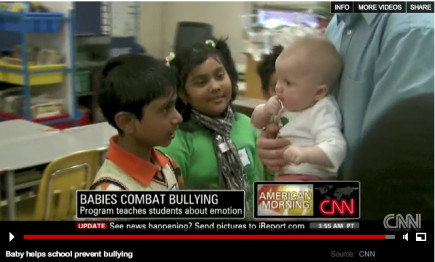


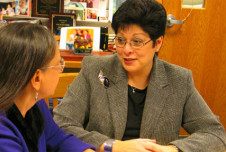
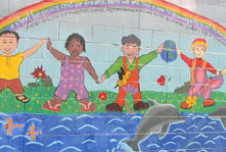
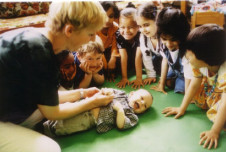
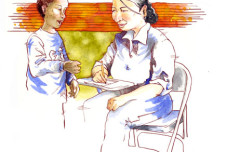
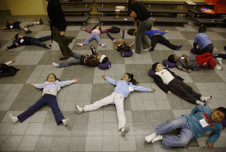

Comments
This is fabulous! So touching and engaging on so many levels - and such a beautiful baby!
The most effective schools re-create the social ethos of a village.
The social milieu of a school defines the children within it, just as all societies do. But a school society is markedly different from all others - this is the only environment in which human beings are pressed into abnormally large social groups by narrow bands of age. Nowhere else are people pushed into groups of 25 or 30 individuals all of the same age. And it is within these abnormal groups that young individuals become defined, and come to define themselves. It is in these social groupings that they must “become what they are”. How can such an abnormal social environment be anything but a factory for producing discontents and future social problems? And in them children not only define what they are, but also what they are not. In other, “normal” social environments defining what one is not is merely a matter of walking away, of distance, of moving out of the group. But in school that is not possible, there one can only define what one is not by one’s behaviour, by distancing oneself behaviourally, in other words by making a statement against.
No point saying we’ve had schools for thousands of years - that would be about as valuable as countering criticisms of the transport problems of today by saying we’ve had transport for thousands of years. The systems are different, and so are the associated problems. Schooling, as it exists now, is a relatively new phenomenon - mass schooling came after the industrial revolution, and for most people it was in mixed age classes, and only until they were fourteen. I won’t say that all schools don’t work, but I would say that only small schools with small mixed age classes can create anything like a normal human social environment, the kind of environment where children don’t have to define themselves by being anti-, by making bold statements of what they are not. Sadly the only schools we seem to be closing down in Britain are the small,”economically non-viable”, rural schools, which ironically, are the only ones that I think have a real chance of “re-creating the village”.
Paul Nicholas | 2:28 am, December 13, 2010 | Link
What an amazing story. It makes perfect sense that
children react positively towards babies. I think this is
a great program and should be implemented in the
US. I’ve seen firsthand the effects of bullying and it
can have a hugely negative impact on a child’s life.
Our schools need to start implementing strategies such
as this to enforce love and compassion. It seems like
we are breeding so much hate and violence and it’s
nice to know that wonderful programs like this are
actually working and being implemented.
Joel Nanos | 12:00 pm, December 13, 2010 | Link